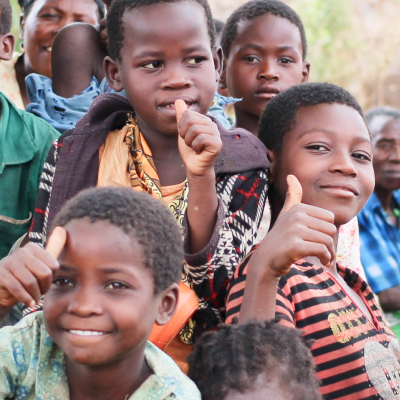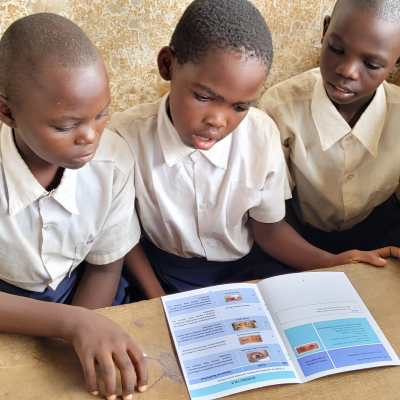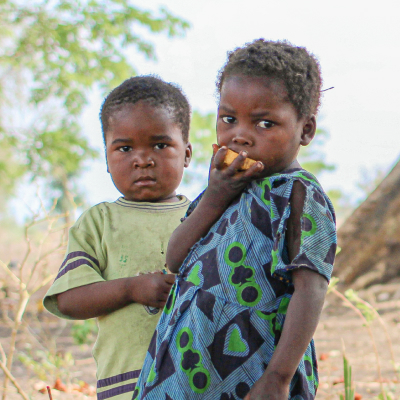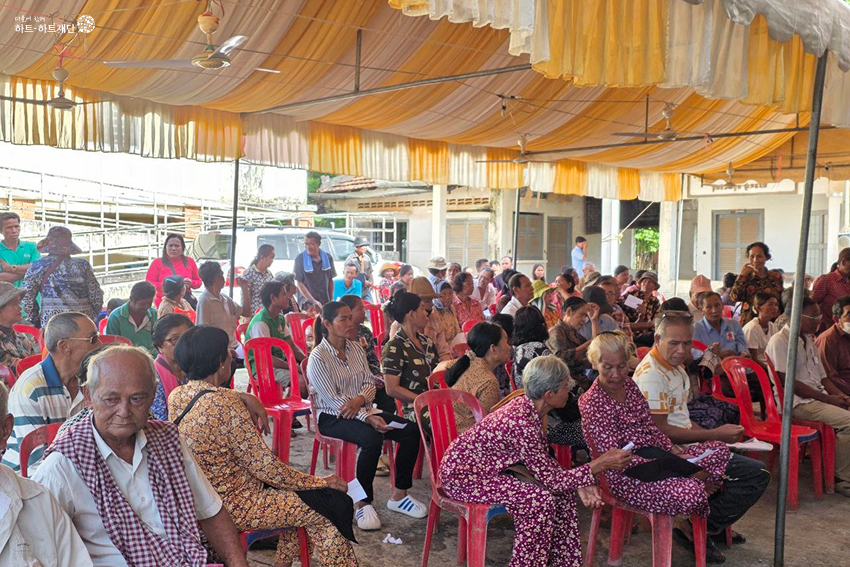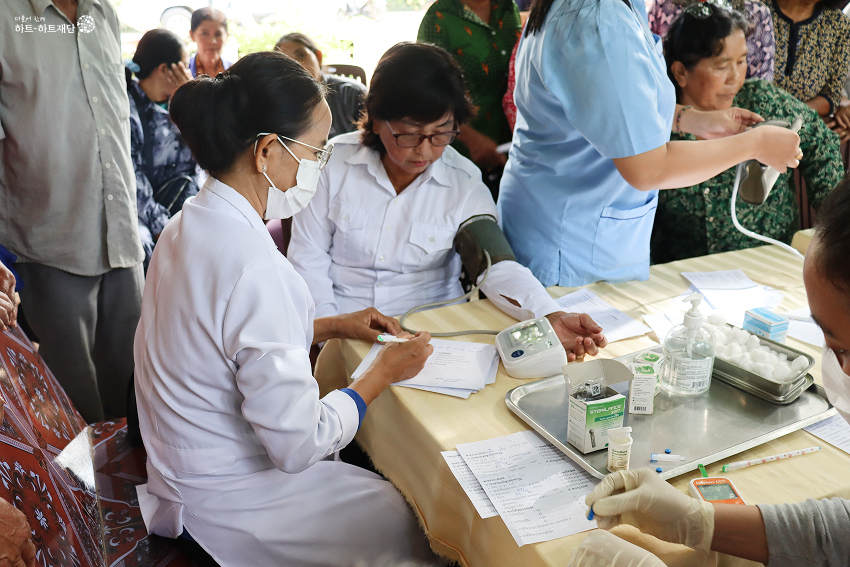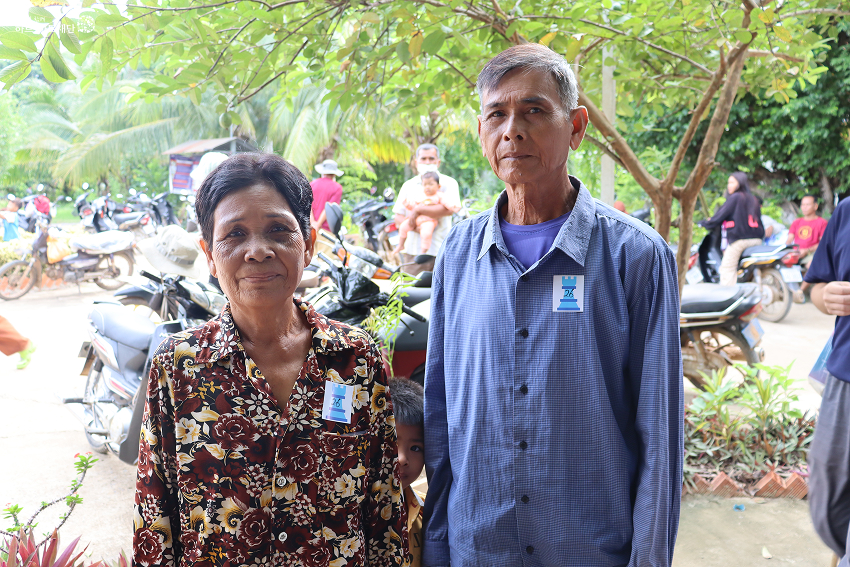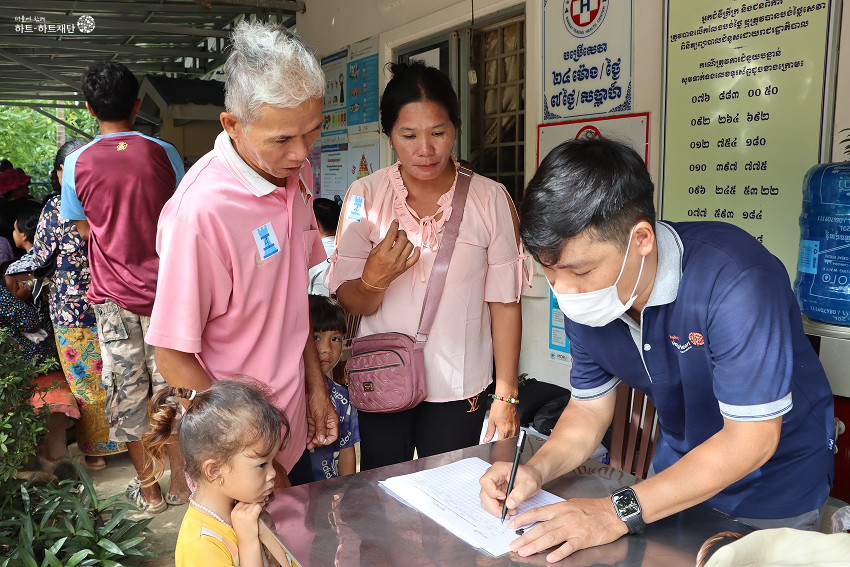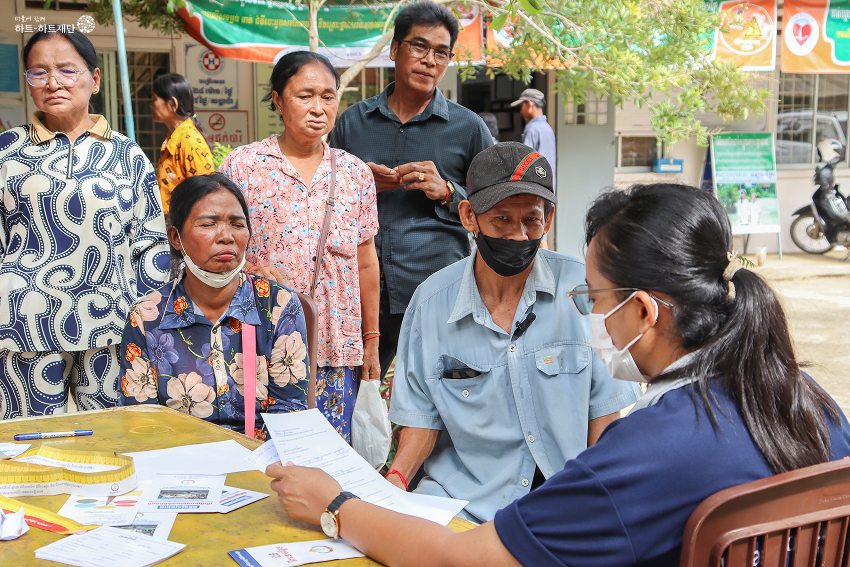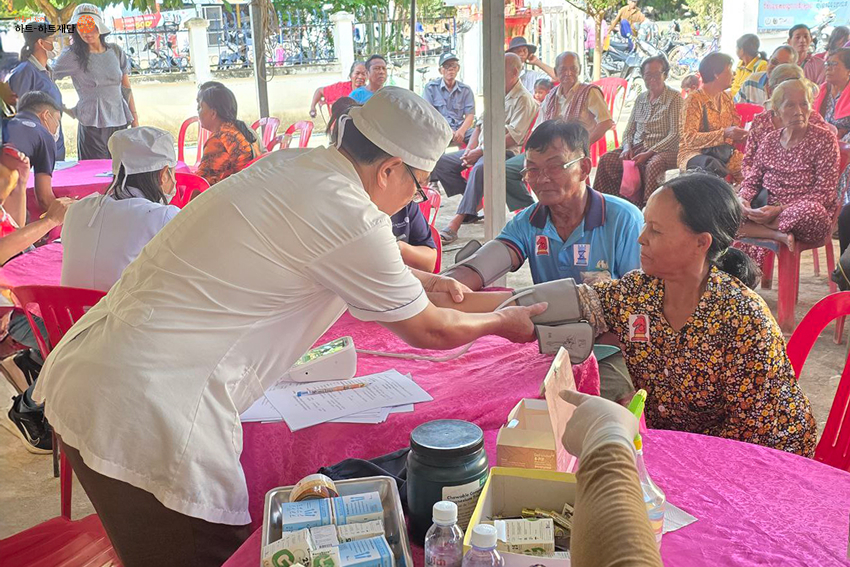The Heart-Heart Foundation Cambodia Branch is implementing a program
in Battambang to prevent and manage non-communicable diseases (NCDs).
As part of this initiative, on July 18 and August 7,
the Foundation conducted “Pair Screening” at Bansaytreng Health Center and Roungchrey Health Center,
in line with the community’s designated NCD Screening Days.
Pair Screening in progress
Since 2021, the Cambodian health authorities and the Heart-Heart Foundation Cambodia Branch have been implementing “NCD Screening Day”
at Thmar Koul and Bavel District Health Centers to facilitate the early detection of non-communicable diseases (NCDs) and prevent related complications.
This year, the program is being conducted four times,
encouraging community members to regularly participate in the NCD Screening Days and receive check-ups.
√ What is NCD Screening Day?
It is a program designed to prevent and manage non-communicable diseases (NCDs)
by providing blood pressure and blood sugar checks,
along with counseling based on the results, to ensure proper treatment and ongoing health management.
Participants having their blood pressure and blood sugar checked
While regularly operating NCD screening services with local health centers,
we observed that men’s participation rates were significantly lower than those of women.
This gender gap in screening participation was also reflected in the 2023 World Health Organization (WHO) report,
which highlighted disparities between men and women in undergoing blood pressure and diabetes testing in Cambodia.
According to the 2023 WHO STEP Survey Report, among adults aged 45–69,
the proportion of men who had never undergone blood pressure (26%) or diabetes testing (53%)
was higher than that of women (15% and 38%, respectively).
A couple coming together for a health screening
In response, this NCD Screening Day introduced Pair Screening as a strategy to increase men’s participation
in health check-ups and to promote greater health equity.
Pair Screening encourages men’s participation by having them undergo health check-ups together
with women—as parent and child, husband and wife, or even neighbors.
This approach is meaningful in that it helps reduce the gender gap in screening participation.
A family registering for Pair Screening during the NCD Screening Day
Before introducing Pair Screening,
interviews were conducted with men in the project area to understand why they were not actively participating
in the existing NCD Screening Days.
The interviews revealed that many men postponed health check-ups, citing reasons such as:
“I am too busy with work to make time,”
“I don’t feel any symptoms, so I’m not sick,”
and “The screening process takes too long.”
These findings highlighted the need for a tailored strategy for men.
Based on this, an informational leaflet for Pair Screening was developed,
using messages such as “Health is the happiness of the family” and
“When health breaks down, livelihood breaks down as well,”
emphasizing that family well-being and livelihood are directly tied to individual health.
The leaflets were then distributed through Village Health Support Groups (VHSGs)
and local village leaders to actively encourage men’s participation.
A couple participating in an interview after completing the screening and counseling
As a result, 56 pairs participated at Bansaytreng Health Center in July, and 54 pairs at Roungchrey Health Center in August.
Compared to previous sessions,
the number of male participants increased from 13 to 59—about 4.5 times higher—
while the number of first-time male participants rose from 3 to 27, a nine-fold increase.
A couple having their blood pressure checked together
On the Pair Screening Day,
in addition to blood pressure and blood sugar measurements and counseling,
awareness sessions and interviews were conducted with male participants to highlight the importance of regular check-ups.
Through this, many men were able to assess their own health status and gain a renewed understanding of the value of screening.
The Heart-Heart Foundation Cambodia Branch successfully concluded its first Pair Screening and is preparing to continue
the initiative to further increase men’s participation in health check-ups.
With this first Pair Screening as a starting point,
we will continue working with the community to expand screening opportunities for vulnerable populations
and ensure broader access to essential health services.
<The Heart-Heart Foundation Cambodia Branch, with the support of the Korea International Cooperation Agency (KOICA),
is implementing a community-based project for the prevention and management of non-communicable diseases (NCDs) in Battambang, Cambodia.>
